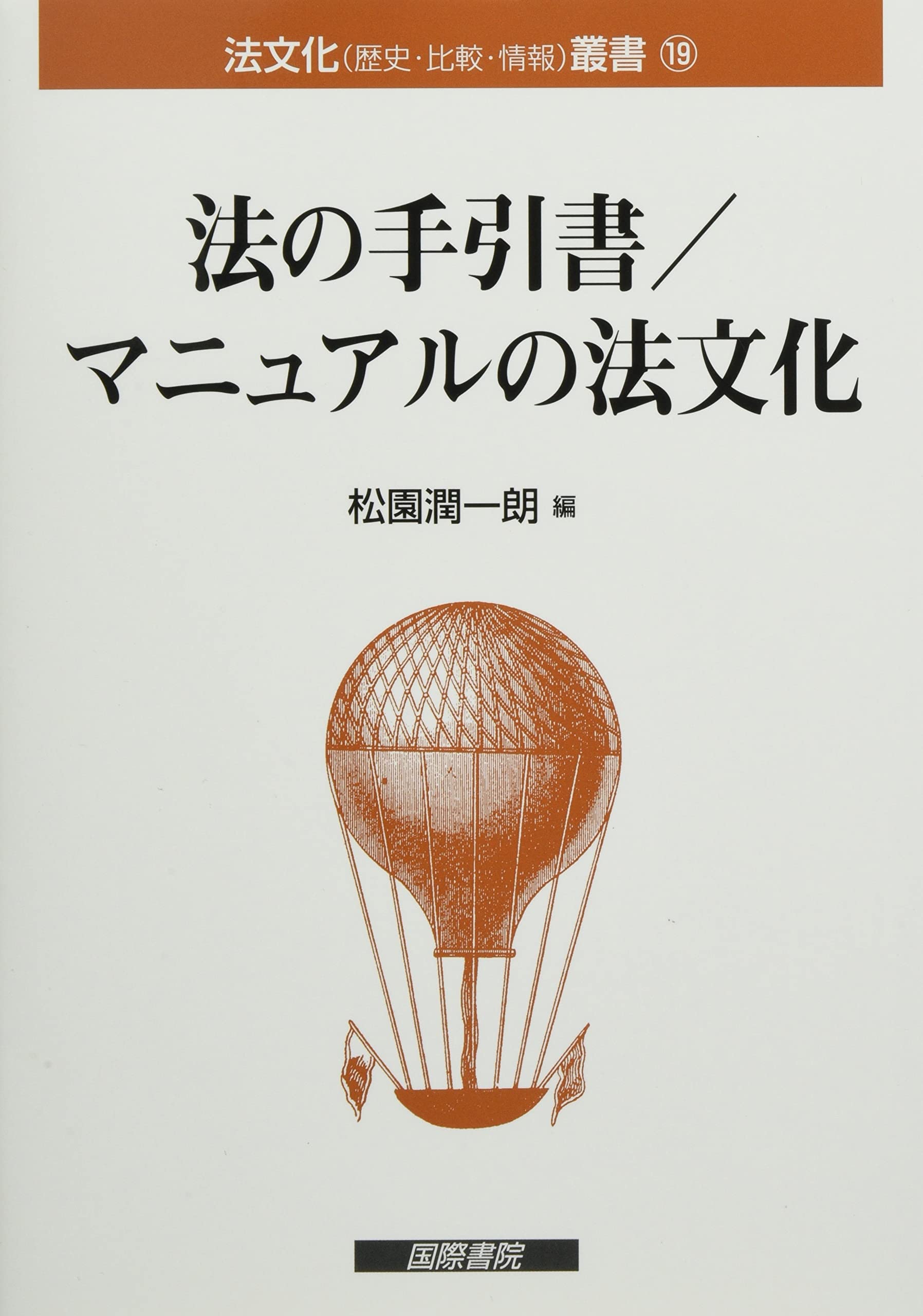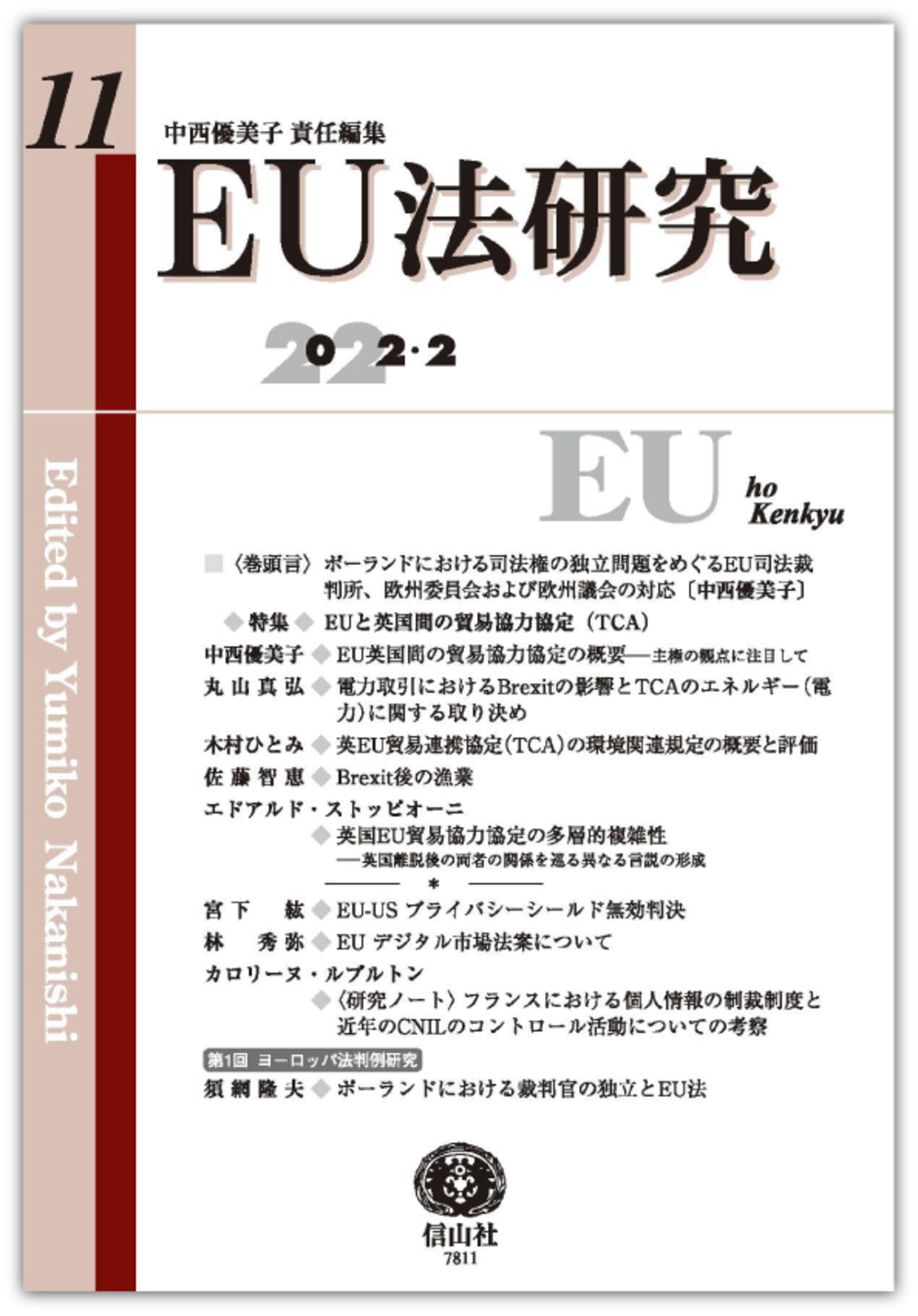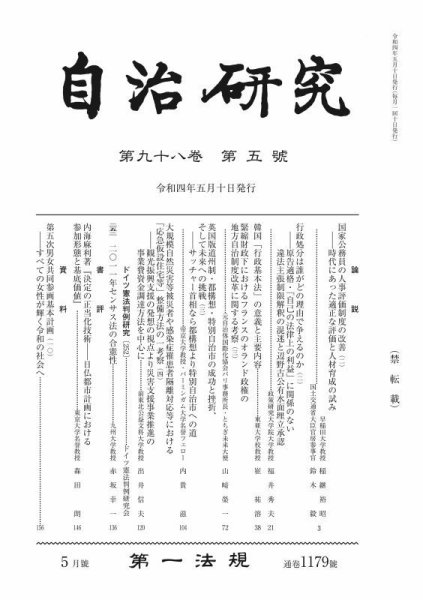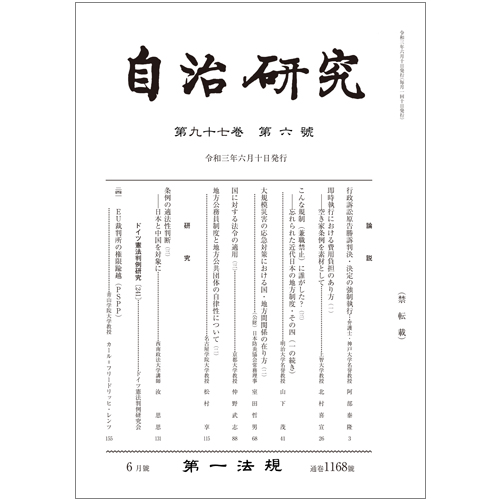Other Publications
Gender Equality in the Workplace from a Legal Perspective: Current Situation and Issues of Japan’s Equal Employment Opportunity Act
AbstractThe Equal Employment Opportunity Act (EEOA), the cornerstone of Japan’s gender equality legislation revised in 2006, faces several challenges including wage discrimination, indirect discrimination on the grounds of sex, and disadvantageous treatment by reason of pregnancy and childbirth, etc. In the future, further strengthening of the EEOA should be considered, including stronger legal remedies for violations.
Law Handbook / Legal Culture of Mannuals [in Japanese]
AbstractThe “law handbook / legal culture of manuals” has taken many forms historically and culturally, including its use in trial practice, litigation, and education. This book has shown its function in policy implementation and the action of media discourse on legislation in modern times. This chapter reviews the relationship between law and manuals in “New China,” examines their characteristics and functions, and explores the heart of the matter.
Brief Overview of the Trade and Cooperation Agreement between the EU and the UK- Focused on Sovereign Related Issues [In Japanese]
AbstractThis paper provides an overview of the Trade and Cooperation Agreement (TCA) between the EU and the UK, focusing on the sovereignty and authority issues surrounding the TCA and clarifying how the TCA defines the relationship between the EU and the UK.
What the “Ukraine was invaded by Russia because it gave up its nuclear weapons” argument misses [in Japanese]
AbstractIn response to the discourse that Ukraine would not have been invaded by Russia if it had not given up its nuclear weapons, the article clarifies why denuclearization of Ukraine was almost the only option by analyzing the history of its process.
Obligation to recognition of the parents-child relationship in rainbow family in EU [in Japanese]
AbstractCase note “Case C-490/20 V.M.A.(CJEU)” Recognition of same-sex marriage is not disciplined at the EU level, but at national level. This case concerned mutual recognition and free movement of EU citizens between an EU member state where same-sex marrage is recognized(Spain) and the member state where it is not(Bulgaria). This case focused on the decision of the EU Court of Justice on how to strike a balance between the incompatible subjects of the enforcement of EU law and respect for national identity.
The Reform of Rural Homestead: Where is the Destination? [in Japanese]
AbstractConfronted with long stagnation and poverty in rural area, party-state authorities began to seek measures to use rural homestead as “real” property. This chapter clarifies the problem of the right to use housing sites from the viewpoint of property rights, analyzes the aspects of the trial and changes in the regulations as well as identifying the aspects of the theory and the conflicts, thereby presenting the current state of the achievement and future prospects.
Introduction of market country taxation through revision of international taxation rules [in Japanese]
AbstractThe article introduces a new framework for international taxation reform to appropriately accommodate the activities of multinational corporations that are digitizing their economies. Prof. Yoshimura examines the theories underlying the taxing rights of market countries and the implications these theories have for the local tax debate and its future. While the changes in international taxation rules are not immediately applicable to local taxation systems, it should be considered that the development of information and communication technology requires modifications to the standards on which taxation rights have been based, a point which the two have in common.
A Comparison of Human Rights Protection in Europe and Japan: The Quest for Marriage Equality
AbstractRegarding same-sex marriage, Prof. Nakanishi makes some remarks about the encounter between Japan and Europe and its consequences in the context of human rights, addressing the situation in Europe and the recent developments in Japan.
The United States and the Globalization of Eastern Europe: Détente, East-West Trade, and the Debt Problem [in Japanese]
AbstractConsidering the globalization of Eastern Europe, the paper examines the response of the U.S. to this process. While the U.S., by economic means, hoped that it could encourage changes in foreign policy and reform of political regimes, there were limits to the influence the U.S. could exercise over Eastern Europe through this response.
Case Law Analysis: BVerfG, Beschluss der 3. Kammer des Zweiten Senats, 2 BvR 1161/19 [in Japanese]
AbstractThis paper is a study of the preliminary ruling procedure in EU law, and focuses on the case of the German Federal Constitutional Court in March 2021. The case concerned the right to a fair trial by a legal judge as stipulated in the 2nd sentence of article 101(1) of the Basic Law for the Federal Republic of Germany . In other words, the issue was that the German Federal Fiscal Court did not ask the Court of Justice of the European Union for a preliminary ruling under the German Constitution.







